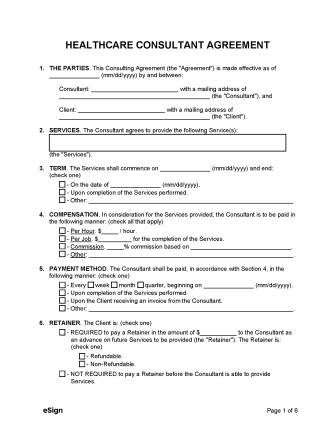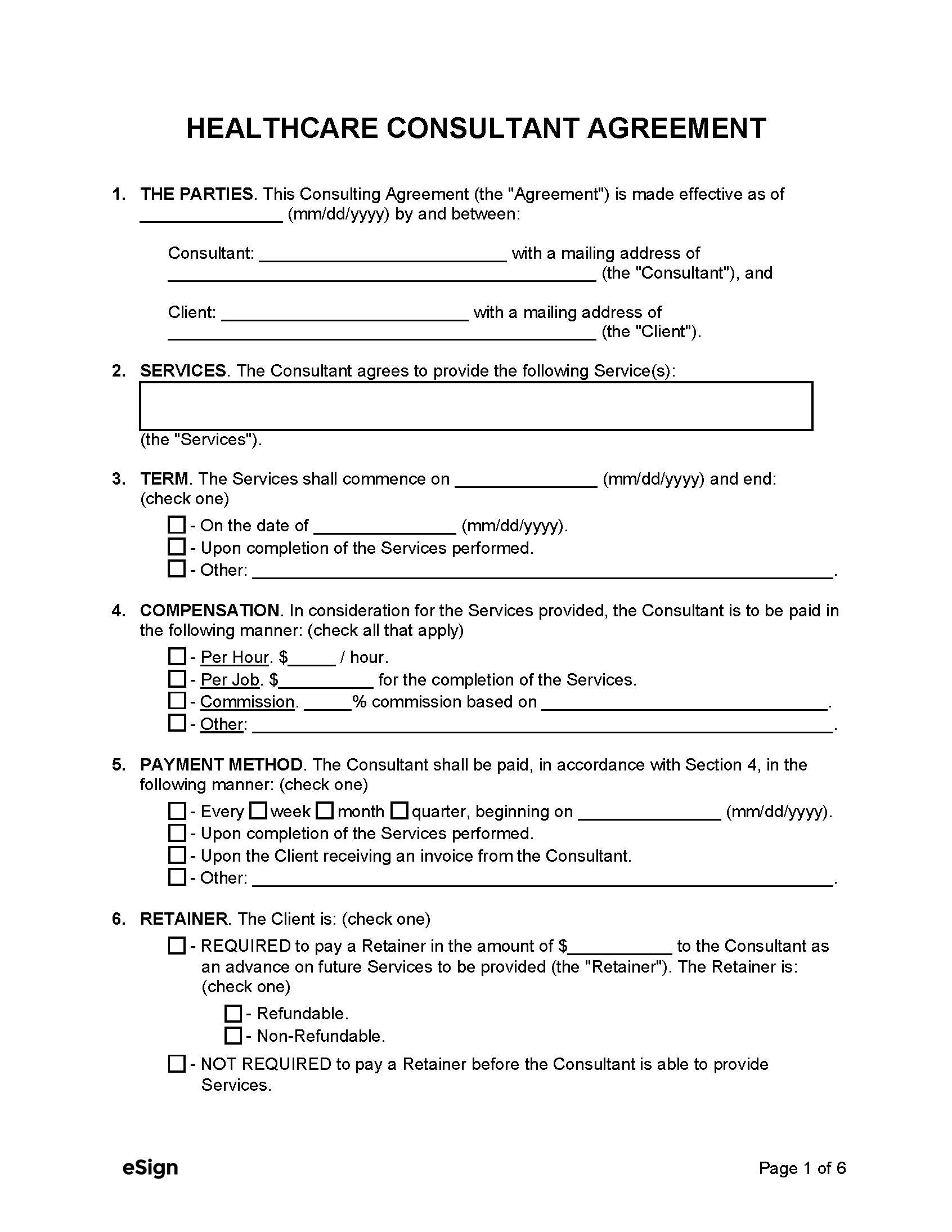What Should Be Included
Healthcare consultant agreements should contain the following terms and conditions:
- Client & Consultant Information – The full name and address of the client and consultant. If either party is a legal entity, the company information should be entered instead.
- Effective Date – The date the consultant agreement becomes legally binding.
- Termination Procedures – How and when the parties can end the contract.
- Consulting Services – The services the consultant agrees to provide for the client.
- Payment – The fee structure (e.g., flat rate, hourly rate, commission), payment schedule, and accepted forms of compensation.
- Retainer Fee – A deposit paid by the client to guarantee the consultant’s future services.
- Expenses – The expenses each party will be responsible for covering.
- Confidentiality – A clause that limits the use and protects patient information, vendor lists, and other confidential data.
Sample
Download: PDF, Word (.docx), OpenDocument
HEALTHCARE CONSULTANT AGREEMENT
1. PARTIES. This Healthcare Consultant Agreement (“Agreement”) is made on [DATE] by and between:
Consultant: [CONSULTANT NAME], with a mailing address of [CONSULTANT ADDRESS] (“Consultant”), and
Client: [CLIENT NAME], with a mailing address of [CLIENT ADDRESS] (“Client”).
2. CONSULTING SERVICES. The Consultant will provide the Client with the following services: [SERVICE DESCRIPTION] (“Services”).
3. TERM. The Services will begin [DATE] and end upon [EXPIRATION DATE OR OTHER TERMINATION EVENT].
4. PAYMENT. In consideration for the Services, the Consultant is to be paid $[AMOUNT] per [PAYMENT BASIS (E.G., HOUR)]. The Client shall issue payment by [PAYMENT METHOD] every [PAYMENT FREQUENCY].
5. RETAINER. The Client is: (check one)
☐ – Required to pay the Consultant a non-refundable retainer of $[AMOUNT].
☐ – Not required to pay a retainer.
6. EXPENSES. The Client shall reimburse the Consultant for the following Service-related expenses: [EXPENSES TO BE PAID BY CLIENT].
7. INDEPENDENT CONTRACTOR STATUS. The Consultant is an independent contractor, and neither the Consultant nor their employees or contract personnel are or shall be deemed the Client’s employees.
8. NON-DISCLOSURE. The Consultant agrees not to disclose or misuse the Client’s proprietary or confidential information without prior written consent, except as needed to perform the Services, recognizing that such actions would cause irreparable harm to the Client.
9. CANCELATION. Either party may cancel this Agreement under the following terms and conditions: [CANCELATION POLICY].
IN WITNESS WHEREOF, the parties have executed this Agreement on the dates indicated below.
Consultant Signature: _____________________ Date: [DATE]
Print Name: [CONSULTANT NAME]
Client Signature: _____________________ Date: [DATE]
Print Name: [CLIENT NAME]

